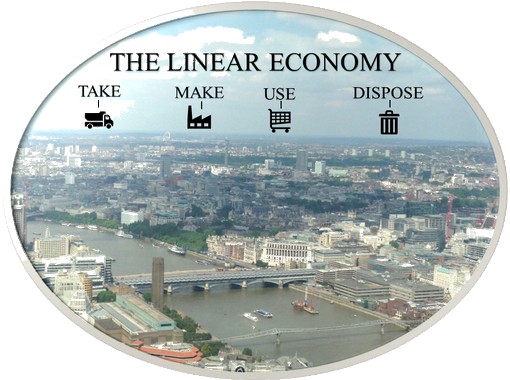For a long time, our economy has been ‘linear’. This means take the resources you need, make the goods to be sold, make profit and dispose of all that you do not need – including a product at the end of its lifecycle
This system is in contrast with what is defined as sustainable development “meeting the needs of the present without compromising the ability for the future to meet their needs”. By making products only to bury them in the ground, it’s a huge waste of resources energy, labour and knowledge invested in the product at every stage in the process. Also, this economic model is subject to the uncertainties such as fluctuating raw material prices, scarce materials, geopolitical dependence on different materials and increasing demand
The linear economy relies on using finite resources, land and water (that are finite as well). With finite resources (i.e. metals, minerals, and fossil fuels) on our planet it is important to make the best use of what we have by minimizing consumption, maximizing reuse and recycling of materials and products. This is because the world population is growing, and this is affecting the environment. To ensure there will be enough food, water and prosperity for the next generations, we need to switch from a linear to a circular economy
Want to know more? Contact Waytoeco at info@waytoeco.com or fill in the webform at the bottom of our homepage https://www.waytoeco.com/

